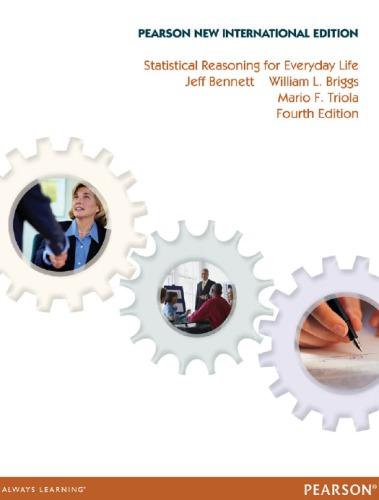Randomizing a Survey. Suppose you want to conduct a survey involving a sensitive question that not all
Question:
Randomizing a Survey. Suppose you want to conduct a survey involving a sensitive question that not all participants may choose to answer honestly (for example, a question involving cheating on taxes or drug use). Here is a way to conduct the survey and protect the identity of respondents. We will assume that the sensitive question requires a yes or no answer. First, ask all respondents to toss a fair coin. Then give the following instructions:
• If you toss a head, then answer the decoy question (yes/
no): Were you born on an even day of the month?
• If you toss a tail, then answer the real survey question (yes/no).
After all participants have answered yes or no to the question they were assigned, count the total numbers of yes and no responses.
a. Choose a question that may not produce totally honest responses and conduct a survey in your class using this technique.
b. Given only the total numbers of yes and no responses to both questions, explain how you can estimate the number of people who answered yes and no to the real question.
c. Will the results computed in part b be exact? Explain.
d. Suppose the decoy question was replaced by these instructions: If you toss a head, then answer yes. Can you still determine the number of people who answered yes and no to the real question?
Step by Step Answer:







